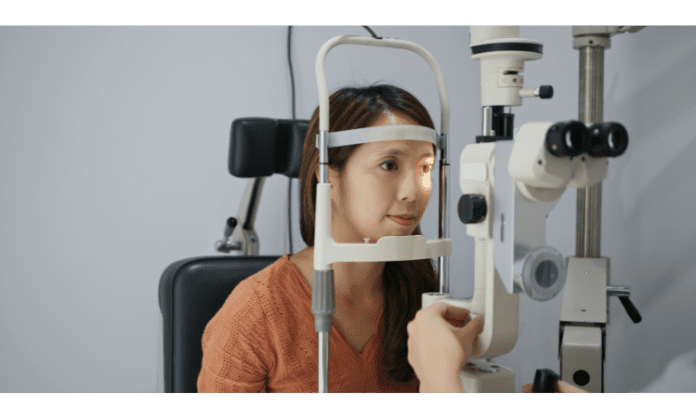
Many people wonder, “How often should I get my eyes checked?” The answer to this question varies depending on several factors, including age, risk factors, and overall health. In this comprehensive guide, we’ll explore various aspects of eye examinations and answer all your questions about when and where to get your eyes checked.
The eye is an intricate organ that performs many different functions. Eyesight, in particular, affects your ability to see, read and drive; it impacts your quality of life in so many ways. That’s why it’s important to make sure your eyes are healthy and functioning properly. If you notice any changes in vision, especially if you’re experiencing significant loss of vision or constant eye pain, it’s definitely time to see an eye specialist.
This guide will help you understand what an eye exam is and why it’s important. We’ll also cover some of the common signs that indicate it’s time to get your eyes checked again.
Importance of eye health
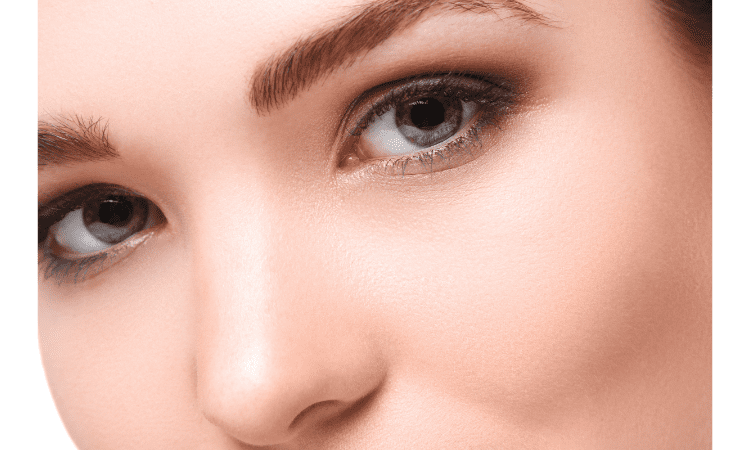
Eye health is important because it is one of the first things most people notice about a person. In addition to this, eye health also helps people see and interact with the world around them. A healthy set of eyes is essential to living a full life. The eye is the window to your mind. It’s an important organ in our body that helps us to see things, read, and write. The cornea is the clear front part of the eye that helps us to focus on things. The lens focuses light onto the retina, which converts light into electrical signals sent through the optic nerve to the brain. The retina contains photoreceptor cells called rods and cones. The cones are responsible for color vision and help you see in bright light, while rods help you see in low-light conditions. Your eyes also help you connect with others—from reading facial expressions and body language to developing relationships with friends and family.
Maintaining good eye health is essential for various aspects of your life, including work, education, and leisure activities. A well-balanced diet, regular exercise, and proper eye care can significantly improve your quality of life and reduce the risk of vision problems. Don’t forget to explore the connection between food and eye health and learn about what causes dark circles under your eyes.
How to Know When to Get Your Eyes Checked
As a general rule, you should have your eyes checked regularly to maintain good eye health and prevent vision issues. However, some circumstances may warrant an eye exam sooner than scheduled. These situations include:
- A sudden change in vision, such as blurry or double vision
- Frequent headaches, eye strain, or difficulty focusing
- Eye pain, redness, or irritation
- Sensitivity to light or glare
- Seeing floaters, flashes of light, or dark spots in your visual field
- Difficulty seeing at night or while driving
- A family history of eye diseases, such as glaucoma or macular degeneration
If you experience any of the below-given symptoms, it’s essential to schedule an appointment with an eye care professional as soon as possible.
A. Headache
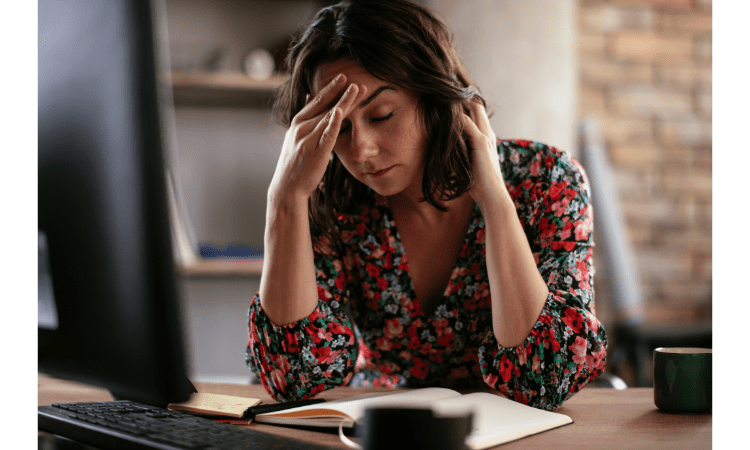
If you’re experiencing a headache, it’s important to get your eyes checked. Headaches caused by an issue with your vision can be extremely painful and debilitating. If you have a headache and have been experiencing visual symptoms, there is a good chance that you are suffering from glaucoma. Glaucoma is a condition that causes damage to the optic nerve, which connects the eye to the brain. The condition can lead to vision loss if left untreated.
B. Red, dry, and itchy eye
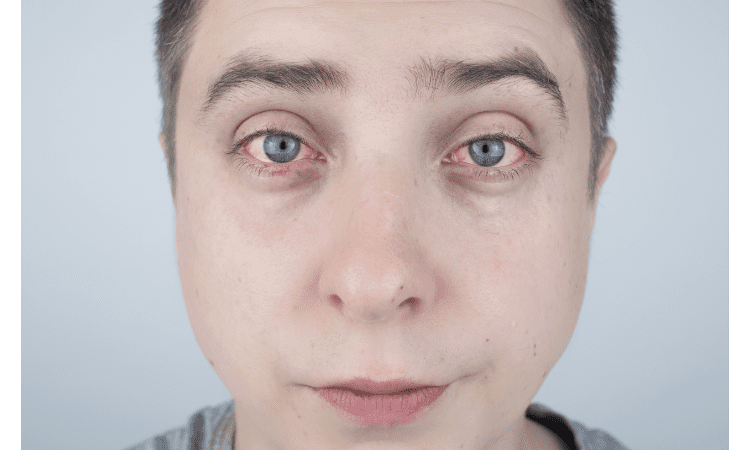
When your eyes are red, dry, and itchy, it’s important to get them checked by a doctor. The red, dry, and itchy eye is a symptom of several different conditions. It could be something as simple as a minor irritation or allergy, but it could also be a sign of something more serious. A number of conditions can cause these symptoms, including allergies, infections, or even a more serious condition like macular degeneration. Dry eye is a common condition that affects the tear film in your eyes. Your tear film helps keep your cornea (the clear covering over your iris) moist and clear so that you can see clearly without discomfort. When the tear film becomes too thin or too dry, you may experience a burning sensation or even pain when you blink.
C. Blurred vision

Blurred vision is a symptom that can occur when your eye is having a problem. This can be due to the cornea, retina, lens or vitreous body of your eye. In order to determine which of these parts are causing you to experience blurry vision, it is important for you to see an optometrist who can perform a full eye exam.
A full eye exam includes testing for peripheral vision and pupil reaction to light as well as looking for any signs of cataracts or glaucoma. It also includes checking for redness in the eyes and any other symptoms that could be present such as headaches or floaters.
If you notice that your vision has become blurred recently and there are no other symptoms present besides the blurred vision itself then it may just be caused by dry eyes or allergies. However, if there are other symptoms such as headaches or floaters then it is best to get checked out immediately because these could be signs of more serious conditions such as glaucoma or macular degeneration.
D. Difficulty seeing computer or tv
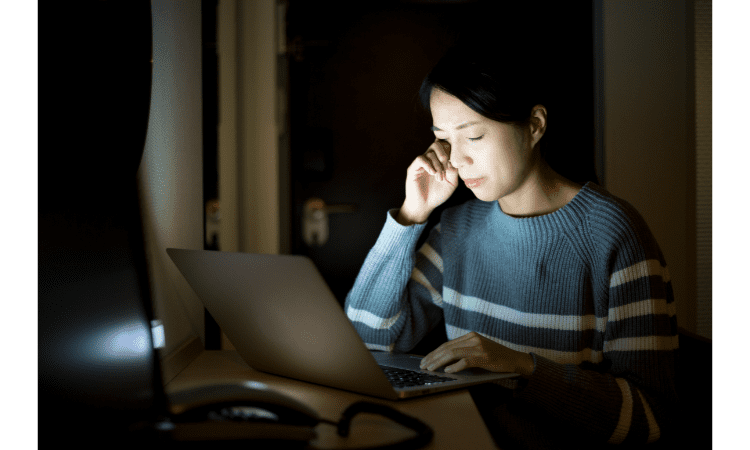
If you find yourself having difficulty seeing the screen on your computer or TV, it may be time to get your eyes checked. If you’re experiencing problems with your vision, you may have a condition called presbyopia. Presbyopia is a natural part of aging that affects all people over 40, and it causes loss of accommodation (ability to focus) in your eyes. The lens inside your eye loses elasticity over time, so it can no longer change shape to focus as well as it did when you were younger. So if you’re struggling to see what’s on the screen in front of you, talk to an eye doctor about getting glasses or contacts that will help improve your vision while also helping prevent further loss of accommodation in your eyes.
E. Trouble seeing at night

If you’re having trouble seeing at night, it might be time to get your eyes checked. The most common cause of vision loss in the dark is cataracts, which are a clouding of the eye’s lens. The lens changes shape to focus light onto the retina, and if it’s cloudy, it can’t focus properly. This causes blurry vision or even total blindness in some cases. Cataracts usually develop slowly over time; they rarely occur overnight. The first sign that you may need glasses is if you have trouble making out shapes in dim light—like when driving at night or walking through your house when all the lights are off. If that sounds familiar, you should definitely talk with an optometrist about getting tested for cataracts.
F. Double vision

Double vision is a symptom of many eye conditions. The most common cause of double vision is a refractive error, which means that your eyes are not focusing properly on an object. This occurs when the shape of your cornea or lens doesn’t allow light rays to focus on the retina, where they’re supposed to be focused.
When you experience double vision, you may see two images of objects instead of one image at a time. You can also see two images when you look in different directions. Double vision can be caused by other conditions as well; however, it’s important to visit an eye doctor if you experience this symptom for more than a few days so that they can assess your condition and rule out any serious health problems.
G. Eye fatigue
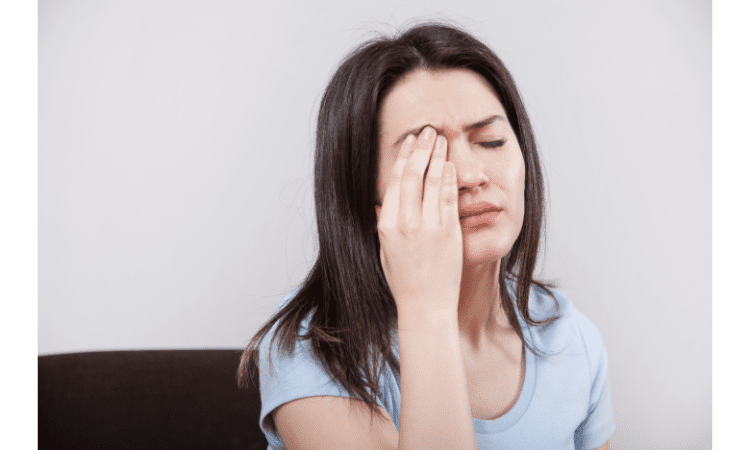
Eye fatigue is a common symptom of poor eyesight, and it can be a sign that you need to have your eyes checked by an optometrist or ophthalmologist. This can be caused by many different things, but one of the most common causes is a condition called refractive error. Refractive errors are problems with how light enters your eyes and is focused onto your retina (the back of your eye). When the light goes through your eye and hits this part of your eye, if it’s not focused perfectly on the retina, it can cause blurriness and even headaches.
H. Flashes, Floaters, and Spots
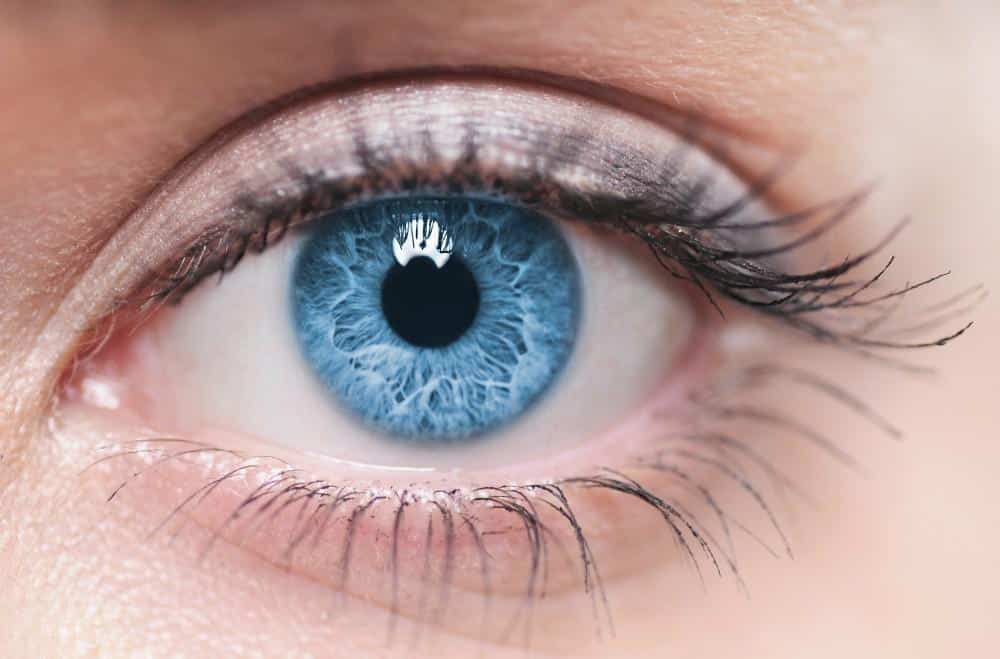
When you see flashes, floaters, or spots in front of your eyes, it’s time to get your eyes checked.
Flashes are bright spots that appear in the field of vision. They are usually caused by a retinal detachment.
Floaters are dark spots that appear to drift across your vision when looking at a bright background. Floaters may be caused by vitreous degeneration (a natural aging process), or they may be linked to a retinal detachment.
Spots are visual abnormalities that look like small spots or clouds moving across the field of vision. Spots can be caused by blood vessels or scars on the retina.
I. Problems with near and distant vision

When you have trouble seeing objects that are close to you and those that are far away, it is a sign that your eyesight is deteriorating. One of the first signs of this is when you can no longer read the newspaper without having to hold it up close to your face. Another sign of vision loss is when you find yourself bumping into things more often than before. If these symptoms persist, it’s time to get your eyes checked by an optometrist.
J. Halos
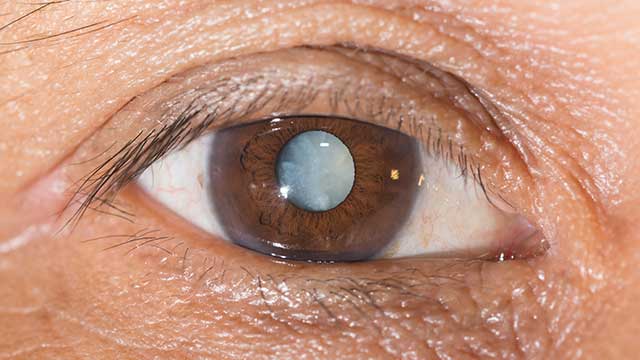
Halos are a sign that your eyesight is probably not as good as it should be. So if you see halos around lights, or if you see a halo around other objects when you’re looking at them, it’s time to get your eyes checked. When you’re driving at night, look for the headlights of cars coming toward you. If they appear to have halos around them, then those cars may be too close for comfort.
Halos can also be an early warning sign of macular degeneration, so if you start seeing them frequently and they bother you, make sure you go in for an eye exam as soon as possible.
K. A family history of eye diseases or other risk factors
A family history of eye diseases can significantly impact your likelihood of developing certain eye conditions. In many cases, genetics play a vital role in the onset and progression of these diseases. Therefore, it is essential to understand the importance of family history and other risk factors when it comes to your eye health.
- Common Hereditary Eye Diseases
Several eye diseases have a genetic component, making them more likely to occur in individuals with a family history of the condition. Some of the most common hereditary eye diseases include- Glaucoma, Age-related macular degeneration (AMD), Retinitis pigmentosa, and Cataracts.
- Other Risk Factors
Apart from family history, several other risk factors can increase your chances of developing eye diseases. These factors include- Age, Ethnicity, Diabetes, Lifestyle factors, and Prolonged use of certain medications.
Eye Examination Frequency: Age-Based Recommendations
Here’s a general guideline for how often you should get your eyes checked based on your age:
- Infants and children: Eye exams should start at six months, followed by another at age three and before starting school. After that, annual check-ups are recommended.
- Adults (18-60 years): Adults should have their eyes examined every two years, or more frequently if they have a family history of eye diseases or other risk factors.
- Seniors (61 years and older): Seniors should schedule annual eye exams due to an increased risk of age-related eye conditions.
How Often Should You Get Your Eyes Checked After 40
As you age, the risk of developing age-related eye conditions, such as presbyopia, cataracts, and glaucoma, increases. After turning 40, it’s essential to schedule eye exams more frequently. If you have no risk factors, an exam every two years is advisable. However, if you have a family history of eye diseases or other risk factors, annual check-ups are recommended.
If you notice any of these signs, it’s essential to schedule an eye exam with a professional to determine the cause and receive appropriate treatment.
How to Get Your Eyes Checked: The Process

When it’s time for an eye exam, you’ll want to visit an optometrist or ophthalmologist. Here’s what to expect during the appointment:
- Medical history and symptom review: Your eye care professional will ask about your personal and family medical history, as well as any symptoms you may be experiencing.
- Visual acuity test: This test measures your ability to see clearly at various distances. You’ll be asked to read letters or symbols on a chart placed at a specific distance.
- Refraction assessment: If necessary, your eye care professional will determine your eyeglass prescription by having you look through a series of lenses and asking which ones provide the clearest vision.
- Eye movement and alignment test: This evaluation checks for proper eye alignment and coordination.
- Slit-lamp examination: Using a high-powered microscope called a slit lamp, your eye care professional will examine the structures of your eyes, such as the cornea, lens, and iris.
- Intraocular pressure test: This test measures the pressure inside your eyes to detect glaucoma.
- Dilated eye exam: Your eye care professional may dilate your pupils with special eye drops to examine the retina and optic nerve for signs of damage or disease.
After the exam, your eye care professional will discuss the results and recommend any necessary treatments or follow-up appointments.
Cost of Eye Examinations

The cost of an eye exam varies depending on the provider, your location, and whether you have vision insurance. On average, an eye exam without insurance can cost between $50 and $200. Large retail chains like Walmart and Costco offer affordable eye exams, often ranging from $50 to $100. Remember that the cost of the exam does not include the price of glasses or contact lenses, which can vary widely.
How to Get Your Eyes Checked for Free
If you cannot afford an eye exam or do not have vision insurance, there are several organizations and programs that offer free or low-cost eye exams:
- Lions Club International: This organization provides financial assistance for eye care services to those in need. Contact your local Lions Club to inquire about their services.
- VISION USA: This program offers free eye exams to low-income, uninsured individuals in the United States. Visit the VISION USA website for more information.
- EyeCare America: This public service program provides comprehensive eye exams and care for seniors and those at increased risk for eye diseases. Check their website for eligibility and details.
Online Eye Exams: Pros and Cons

Online eye exams have become increasingly popular due to their convenience and cost savings. These exams use computer algorithms to assess your vision and provide a prescription for glasses or contact lenses. However, there are some limitations to online eye exams:
Pros:
- Convenient and accessible from the comfort of your home
- Cost-effective compared to in-person exams
- Suitable for updating an existing prescription
Cons:
- Cannot detect or diagnose eye diseases Not suitable for individuals with certain eye conditions or risk factors
- May not be as accurate as in-person exams
- Not accepted by all eye care professionals or vision insurance providers
Online eye exams can be a helpful tool for those with minimal risk factors and who require a prescription update. However, they should not replace comprehensive, in-person eye exams for diagnosing and treating eye diseases.
Where to Get Your Eyes Checked Without Insurance
If you don’t have vision insurance, consider the following options for affordable eye exams:
- Retail chains: Stores like Walmart, Costco, and Target offer eye exams at a lower cost than private practices. Make sure to compare prices and check for any discounts or promotions.
- Community health clinics: Some community health clinics provide eye care services on a sliding scale based on your income. Contact your local clinic for more information.
- Optometry schools: Optometry schools often offer discounted eye exams performed by supervised students. Visit the Association of Schools and Colleges of Optometry website to find a school near you.
- Free or low-cost eye exam programs: As mentioned earlier, organizations like Lions Club International, VISION USA, and EyeCare America provide free or low-cost eye exams to eligible individuals. Check their websites for details and eligibility requirements.
Consequences of Not Getting Your Eyes Checked
Neglecting regular eye exams can lead to several consequences, including:
- Undiagnosed eye diseases, such as glaucoma or macular degeneration, which can result in permanent vision loss if left untreated
- Worsening vision due to outdated eyeglass or contact lens prescriptions
- Difficulty performing daily tasks, such as reading, driving, or using electronic devices
- Increased risk of accidents or falls due to poor vision
- Reduced quality of life and overall wellbeing
Conclusion
It’s important to get your eyes checked regularly. You should see an optometrist or ophthalmologist every year, or sooner if you notice any changes in your vision.
If you have a family history of eye disease, it’s especially important to get regular eye exams. If you’re at risk for diabetes, it’s also important to get regular eye exams because of the connection between diabetes and eye problems. We hope that this article has been helpful to you in determining when it’s time to get your eyes checked. If you notice any of the signs listed above, it may be time to schedule an appointment with your eye doctor.











